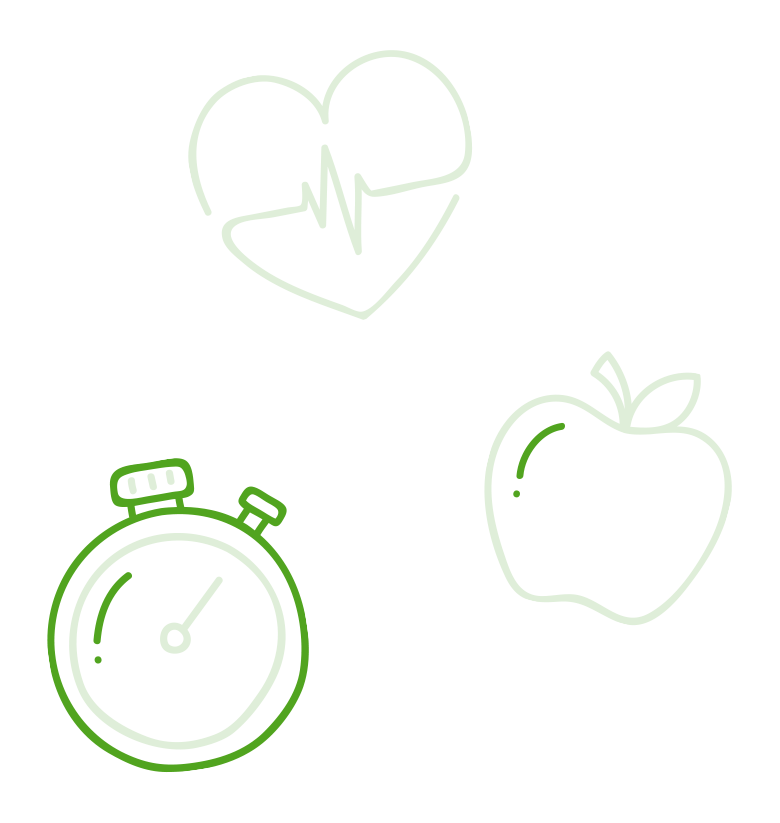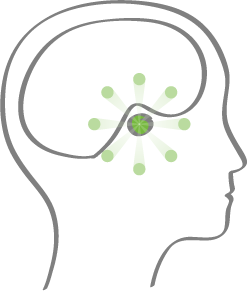Understanding the therapy.

Sometimes people’s bodies don’t produce enough growth hormone on their own. This is called growth hormone deficiency. When this happens, both children and adults may be treated with man-made growth hormone called recombinant human growth hormone. This hormone is identical to the growth hormone that human bodies make.
Elixier® is one of these therapies, and it’s often prescribed for several growth-related conditions. It’s used to treat:
- Children who are not growing because of low or no growth hormone
- Children who are short (in stature) and who have Noonan Syndrome or Turner Syndrome
- Children who are short (in stature) because they were born small (small for gestational age-SGA) and have not caught-up in growth by age 2 to 4 years
- Children who are short (in stature) with no underlying disorder, hormonal issue, or nutritional problem (Idiopathic Short Stature)
- Children who are not growing who have Prader-Willi syndrome (PWS)
- Adults who do not make enough growth hormone


Growth hormone has an important job.
What is growth hormone? A role of growth hormone is to tell organs, tissues, and other parts of the body to grow. Knowing exactly how it functions in the body will help you understand the mechanics of treatment with Elixier®.
What about safety?
The safety of your child is always foremost in your mind. The safety profile of Elixier® has been established in many clinical studies. We’ve got the information you need on safety, side effects, and risk factors.

Selected Important Safety Information
Do not use Elixier® if: you have a critical illness caused by certain types of heart or stomach surgery, trauma or breathing (respiratory) problems; you are a child with Prader-Willi syndrome who is severely obese or has breathing problems including sleep apnea; you have cancer or other tumors; you are allergic to somatropin or any of the ingredients in Elixier®; your healthcare provider tells you that you have certain types of eye problems caused by diabetes (diabetic retinopathy); you are a child with closed bone growth plates (epiphyses).
Indications and Usage
What is Elixier® (somatropin) injection?
Elixier® is a prescription medicine that contains human growth hormone and is used to treat:
- children who are not growing because of low or no growth hormone
- children who are short (in stature) and who have Noonan syndrome, Turner syndrome, or were born small (small for gestational age-SGA) and have not caught-up in growth by age 2 to 4 years
- children who have Idiopathic Short Stature (ISS)
- children who are not growing who have Prader-Willi syndrome (PWS)
- adults who do not make enough growth hormone
Important Safety Information (cont’d)
Before taking Elixier®, tell your healthcare provider about all of your medical conditions, including if you:
- have had heart or stomach surgery, trauma or serious breathing (respiratory problems)
- have had a history of problems breathing while you sleep (sleep apnea)
- have or have had cancer or any tumor
- have diabetes
- are pregnant or breastfeeding, or plan to become pregnant or breastfeed
Tell your healthcare provider about all the medicines you take, including prescription and over-the-counter medicines, vitamins, and herbal supplements. Elixier® may affect how other medicines work, and other medicines may affect how Elixier® works.
How should I use Elixier®?
- Use Elixier® exactly as your health care provider tells you to
- Do not share your Elixier® pens and needles with another person even if the needle has been changed. You may give another person an infection or get an infection from them.
What are the possible side effects of Elixier®?
Elixier® may cause serious side effects, including:
- high risk of death in people who have critical illnesses because of heart or stomach surgery, trauma or serious breathing (respiratory) problems
- high risk of sudden death in children with Prader-Willi syndrome who are severely obese or have breathing problems including sleep apnea
- increased risk of growth of cancer or a tumor that is already present and increased risk of the return of cancer or a tumor in people who were treated with radiation to the brain or head as children and who developed low growth hormone problems. Contact the healthcare provider if you or your child start to have headaches, or have changes in behavior, changes in vision, or changes in moles, birthmarks, or the color of your skin
- new or worsening high blood sugar (hyperglycemia) or diabetes
- increase in pressure in the skull (intracranial hypertension). If you or your child has headaches, eye problems, nausea or vomiting, contact the healthcare provider
- serious allergic reactions. Get medical help right away if you or your child has the following symptoms: swelling of your face, lips, mouth or tongue, trouble breathing, wheezing, severe itching, skin rashes, redness or swelling, dizziness or fainting, fast heartbeat or pounding in your chest, or sweating
- your body holding too much fluid (fluid retention) such as swelling in the hands and feet, pain in your joints or muscles or nerve problems that cause pain, burning, or tingling in the hands, arms, legs and feet. Tell your healthcare provider if you have any of these signs or symptoms of fluid retention.
- decrease in a hormone called cortisol. Tell your or your child’s healthcare provider if you or your child has darkening of the skin, severe fatigue, dizziness, weakness or weight loss
- decrease in thyroid hormone levels
- hip and knee pain or a limp in children (slipped capital femoral epiphysis)
- worsening of pre-existing curvature of the spine (scoliosis)
- severe and constant abdominal pain can be a sign of pancreatitis. Tell your or your child’s healthcare provider if you or your child has any new abdominal pain.
- loss of fat and tissue weakness in the area of skin you inject
- increase in phosphorus, alkaline phosphatase, and parathyroid hormone levels in your blood
The most common side effects of Elixier® include:
- injection site reactions and rashes, and headaches
